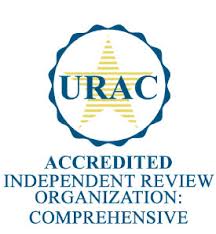
What is Peer Review?
Peer review is, essentially, a professional but unbiased approach to looking at denied claims and determining whether or not the denial was fair. Denials that go unreviewed could be costing your organization money. Overturning one denial may not seem like much money, but when you add them up over the course of a year, you could be looking at tens of thousands of dollars.
Independent Review Organizations – IROs
Independent Review Organizations, or IROs, are an essential piece of denial management. Reviewing denied claims internally would be counterproductive, as an organization is not immune to their own bias. Additionally, they may not necessarily have all the requisite information: a physician in the position to complete peer reviews must be practicing and have a certain level of experience in their specialization. It stands to reason that in some cases the peer reviewers may have the upper hand in catching wrongly denied claims. Not to mention the time: most organizations couldn’t imagine dedicated time and staff resources to sifting through the potential mountain of denials. That’s where an IRO comes in.
Who Benefits From IROs?
IRO’s aren’t just for hospitals; third party administrators, stop-loss carriers, managed care organizations, self-insured companies that pay employee benefits, disability insurance carriers, worker’s compensation carriers, casualty firms paying out medical claims and special investigation units working on identifying fraud all make use of the impartial and specialized IRO.
When Should I Start The IRO Process?
You don’t have to wait until your claims are denied to start using an IRO’s services, though. In fact, your organization would likely do well to utilize an IRO before the denials start rolling in. Periodic external assessments of your operations will help you to catch vulnerabilities and correct them before they cost you money in denied claims. Whether it’s concerns of efficiency, technology integration or the structural integrity of your organizational hierarchy, the information to be gleaned from an IRO certainly won’t hurt your strategic plan.
What About CIA Compliance?
Occasionally, you’ll need to make use of an IRO’s services in order to remain in compliance with the Office of the Inspector General’s Corporate Integrity Agreement (CIA). Often, your utilization of an IRO will come internally, from your own staff and administration, who sees an opportunity for improvement and feels motivated to begin the process of change.
How Do I Choose The Right IRO For My Organization?
Of course, it can be stressful to choose an IRO when there’s so much on the line: money, professional integrity and in some cases, adherence to government standards. Choosing an IRO needn’t be a headache. To find a URAC Accredited IRO, please visit the URAC website.

